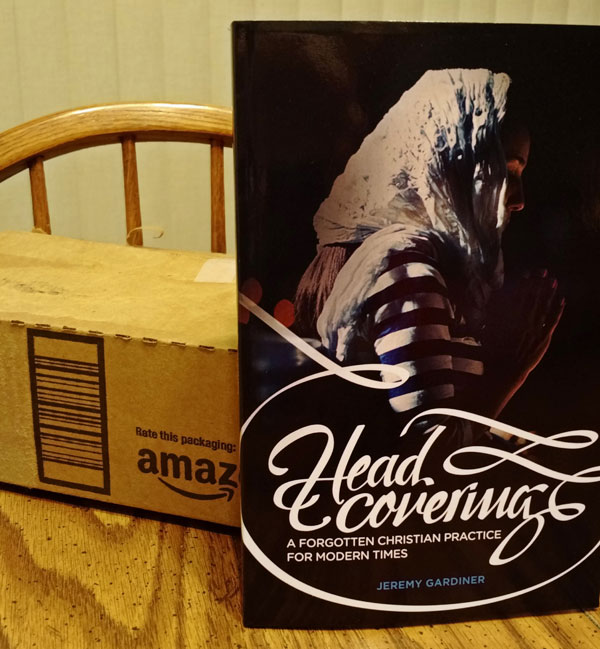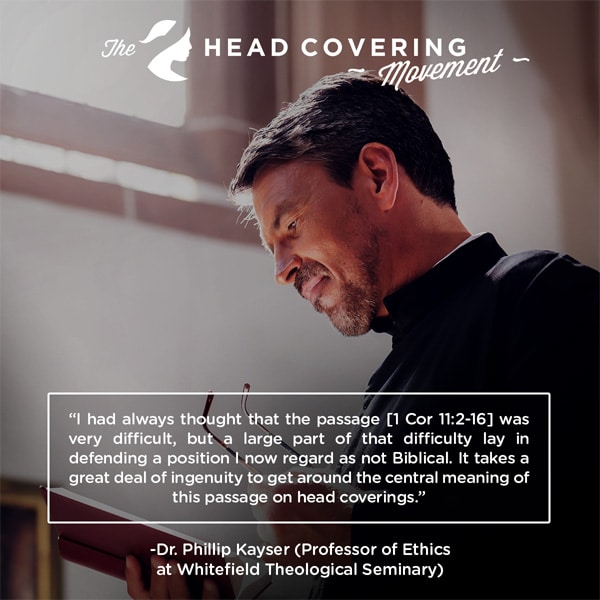Le voile, entre peine et privilège.

[Auteur invité : Cet article a été écrit par Carlton McLeod. Si écrire pour le Head Covering Movement vous intéresse, contactez-nous !]

Carlton McLeod est né à Colombia en Caroline du Sud, et il a grandi à Upper Malboro dans le Maryland. En 1987, il est entré dans la Marine, et il s’est hissé au rang de lieutenant avant que le Seigneur ne l’appelle au ministère à plein-temps. En 1997, Dr. McLeod et son épouse Donna se sont établis dans l’église Calvary Revival Church de Chesapeake en Virginie. Dr. McLeod veille précautionneusement à ce que son enseignement soit toujours plein de compassion et très ancré dans une vision biblique du monde. Après avoir passé les premières années de son ministère à essayer de sortir les jeunes des ténèbres avec les méthodes du monde, il est revenu à la Bible pour se rendre compte du besoin pressant que les familles vivent l’Évangile et qu’elles pratiquent un discipulat familial biblique, qui soit fervent, constant et conduit par l’Esprit. C’est pour répondre à cette vision que la D6 Reformation a été créée. Dr. McLeod a décroché un bachelor en sciences appliquées à l’Université d’Hampton, un master de théologie et un doctorat en ministère pastoral au Séminaire Théologique d’Andersonville. Carlton et son épouse Donna sont mariés depuis 1992 et ont trois beaux enfants : Dori, Aryanna et Jonathan.
En janvier 2013, le Seigneur m’a poussé à prêcher sur l’Épître aux Corinthiens, verset par verset. Sachant ce que contient cette lettre paulinienne j’étais excité mais aussi nerveux. Pourquoi ? À cause de ce que ça impliquerait d’obéir vraiment à ce qui y est écrit. En fait, j’ai veillé à vérifier “doublement” que ce projet de prédication soit bien conforme à la volonté du Seigneur pour notre congrégation ! J’ai d’abord discerné dans la prière. Puis j’ai soumis le projet aux anciens. Nous en avons parlé et nous avons prié. Pourquoi tant de précautions ? Parce que la première lettre aux Corinthiens est un livre qui fait peur, prêcher sur d’autres chapitres de la Bible est tellement plus facile ! Pourtant, en mai 2013 nous nous sommes lancés (avec beaucoup de prières !) et nous en sommes arrivés à bout en décembre 2014.
Bon, je dois avouer que mes craintes étaient fondées. L’Épître a complètement secoué notre assemblée. Pourquoi ? Parce que nous avons simplement refusé d’ignorer les passages difficiles et avons au contraire étudié chacun d’eux en profondeur en faisant du mieux que l’on a pu. En conséquence, les gens se sont offusqués. Certaines personnes nous ont quittés. Et j’ai été (et suis toujours) l’objet de vives critiques. Encore une fois… Pourquoi ? Parce que cette section des Saintes Écritures contient beaucoup de choses que les gens de notre époque moderne n’aiment pas du tout entendre, surtout pour ce qui concerne la discipline d’église, les dons spirituels, l’ordre dans l’église et les questions sur les femmes. En fait c’est ce dernier point qui a fait déborder le vase. Read more
- Share
- Like
- Tweet
- Pin It
- Digg
- Delicious
- Tumblr
- VKontakte
- Flattr
- Buffer
- Love This
- Odnoklassniki
- Meneame
- Blogger
- Amazon
- Yahoo Mail
- Gmail
- AOL
- Newsvine
- HackerNews
- Evernote
- MySpace
- Mail.ru
- Viadeo
- Line
- Comments
- Yummly
- SMS
- Viber
- Telegram
- Subscribe
- Skype
- Facebook Messenger
- Kakao
- LiveJournal
- Yammer
- Edgar
- Fintel
- Mix
- Instapaper
- Copy Link






